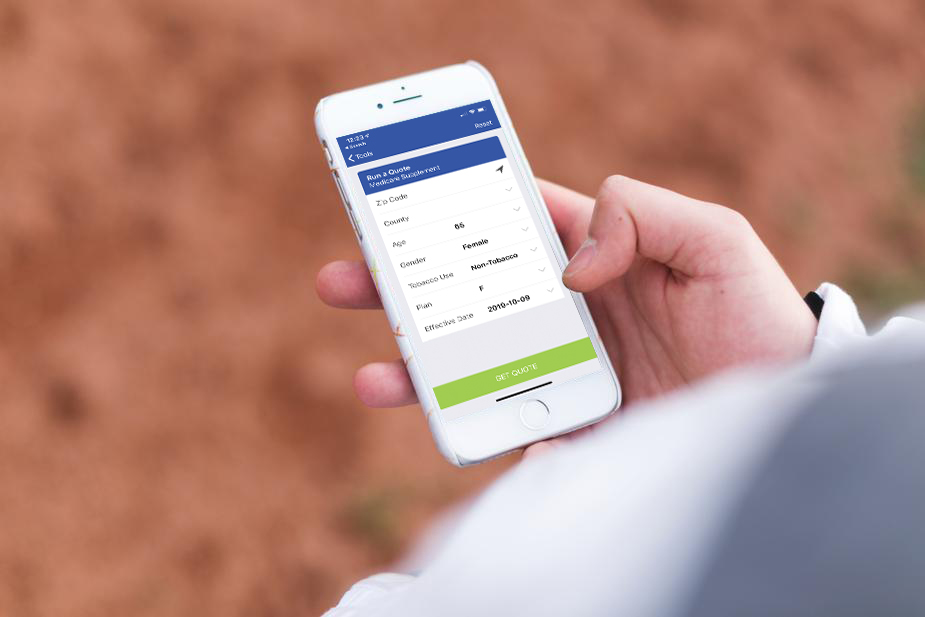Deep Dive Into FMO for Health Insurance
The health insurance industry is complex and ever-changing, driven by evolving regulations, diverse consumer needs, and technological advancements. Within this labyrinthine landscape, Field Marketing Organizations (FMOs) serve as crucial intermediaries, bridging the gap between health insurance carriers and independent insurance agents. This article aims to provide an in-depth understanding of what an FMO is in the health insurance world, including its functions, benefits, and relevance to agents and brokers.
What is an FMO in Health Insurance?
Field Marketing Organizations, colloquially known as FMOs, occupy a unique and indispensable niche within the sprawling tapestry of the health insurance industry. While their function as intermediaries between insurance carriers and agents is often highlighted, this barely touches upon the multifaceted roles these organizations play. On the surface, one could sum up an FMO’s role as a conduit through which agents access an array of insurance products. Yet, a closer look reveals a more intricate model designed to bolster both the efficiency and effectiveness of independent insurance agents.
A Versatile Portfolio
At the cornerstone of an FMO’s offerings is a versatile product portfolio. This isn’t merely a collection of insurance policies but an intricately curated selection of products that span various carriers, each with their own set of features, advantages, and even limitations. By aligning with an FMO, agents can effectively become one-stop shops for their clients, capable of addressing a spectrum of health insurance needs, whether that’s for individuals, families, or specialized groups like senior citizens. This portfolio diversification enables agents to position themselves as trusted advisors, rather than just salespeople.
Beyond Sales: Training and Skill Development
While the product portfolio offers an immediate tangible benefit, FMOs bring long-term value through comprehensive training and skill development programs. These aren’t cookie-cutter seminars but targeted training modules that dive into the complexities of health insurance products, market trends, and selling techniques. With the health insurance landscape being subject to frequent policy changes and regulatory updates, staying informed is crucial. FMOs typically employ industry experts who craft training materials and offer insights, keeping agents up-to-date and poised to offer expert advice to clients.

Marketing and Branding Support
In today’s digitally connected world, effective marketing transcends traditional boundaries. FMOs often have dedicated marketing teams that help agents establish their brand. This can range from providing customizable marketing materials, like brochures and digital content, to even more complex services such as SEO optimization and social media strategy. Essentially, they offer agents the tools to not just reach their audience but to do so with impactful, high-quality content that converts leads into clients.
Administrative Powerhouse
One of the more underappreciated aspects of what an FMO offers lies in its administrative capabilities. Agents often find themselves bogged down with the minutiae of paperwork, compliance, and client management—a daunting workload that leaves little room for actual selling. FMOs often come equipped with robust Customer Relationship Management (CRM) systems, streamlined paperwork processes, and even dedicated support for contractual and compliance issues. These services liberate agents from administrative drudgery, allowing them to focus on client interaction, product understanding, and ultimately, sales.
The Financial Edge
Lastly, it’s essential to talk about the financial benefits, which are often the most immediate draw for many agents. FMOs often negotiate higher commission rates with carriers due to the sheer volume of business they generate. Agents affiliated with FMOs often find themselves benefiting from these higher commissions, which can make a significant difference in their overall earnings. Some FMOs even offer bonus structures for high-performing agents, adding another layer of financial incentive.
In sum, defining what an FMO is in the health insurance world requires more than a cursory glance at its basic functions. It is a multi-dimensional entity designed to uplift the capabilities of independent insurance agents in an increasingly competitive and complex landscape. From product diversification to skill enhancement, marketing acumen to administrative efficiency, and financial benefits to long-term career growth—FMOs offer a comprehensive suite of advantages that empower agents to excel.
How Jane Found Success Through an FMO
Jane was a diligent insurance agent who found herself stuck in a rut. Despite her best efforts, she was unable to grow her client base or even offer a variety of products that could meet diverse client needs. She had relationships with a couple of health insurance carriers but felt severely limited by the lack of options. It was then that she stumbled upon an FMO that promised extensive support in all aspects of her career.
Within a few months of partnering with the FMO, Jane’s career took a turn for the better. She underwent comprehensive training programs that polished her sales skills and enhanced her product knowledge. She no longer had to fret about administrative bottlenecks; the FMO took care of those. Perhaps most impressively, her product portfolio expanded exponentially. With a wider array of products, she could cater to a more diverse client base, from young adults to senior citizens. The FMO even provided her with marketing tools and strategies that significantly boosted her outreach. Today, Jane is a successful insurance agent with a thriving client base, all thanks to her decision to work with an FMO.

For example, take the case of Smith Insurance Agency, a small-scale, independent firm that faced stagnation for several years. After partnering with a reputable FMO, the agency saw a 30% growth in its customer base within just one year. The FMO not only provided a broad spectrum of insurance products for the agency to offer but also supported its sales funnel with targeted lead-generation strategies. This real-world example highlights the tangible benefits that can accrue from an FMO partnership.
FMOs and Technology: A Harmonious Partnership
In the era of digital transformation, FMOs have not been left behind. Many modern FMOs offer sophisticated technology solutions, from comprehensive Customer Relationship Management (CRM) systems to analytics dashboards that help agents track and assess their performance metrics. These tools are not just add-ons; they are integral parts of how FMOs add value to an agent’s practice.
For instance, advanced CRM systems can streamline client management, allowing agents to focus on what they do best—advising clients and selling policies. Some FMOs even offer mobile applications that facilitate on-the-go client management and policy tracking, a much-needed feature in today’s fast-paced world. Through technology, FMOs help agents keep pace with industry changes and customer expectations, offering a digital edge that is increasingly becoming indispensable.
Regulatory Landscape: Navigating the Maze with FMOs—An In-Depth Analysis
In an industry steeped in regulations, keeping track of legislative changes is not just a necessity but a full-time job in itself. Health insurance is one of the most regulated sectors in the United States. It falls under the ambit of multiple laws at both federal and state levels, including landmark legislation like the Affordable Care Act (ACA). Navigating these regulations becomes a Herculean task for insurance agents who already have to juggle between client consultations, policy explanations, and sales efforts. This is where Field Marketing Organizations (FMOs) bring unparalleled value in the form of regulatory assistance, enabling agents to concentrate on their core functions without compromising compliance.
Making Sense of Legislation
Interpreting laws related to health insurance is not a straightforward task. Regulations often contain technical jargon that requires specialized legal training to fully comprehend. FMOs bridge this gap by employing experts familiar with both the health insurance industry and its related laws. These experts dissect complex legislations into easily digestible information, cutting through the legalese to provide agents with summaries, guides, or bullet-point lists that help them understand the laws that affect their business. This service proves invaluable in helping agents comprehend how changes in legislation could impact various insurance products, premiums, or claims procedures.
Proactive Updates and Training Modules
Federal and state laws related to health insurance are not static; they evolve in response to socio-political factors and public health needs. The legislative landscape can thus shift quickly, sometimes within the span of a few months. FMOs actively monitor these changes and provide proactive updates to agents, often via newsletters, webinars, or specialized training sessions. This real-time information keeps agents ahead of the curve, equipping them with the latest regulatory knowledge to confidently guide their clients through purchasing decisions.

Legal Consultations and Compliance Checks
Another layer of regulatory support that FMOs offer comes in the form of legal consultations and compliance checks. Let’s say there’s a new rule affecting the enrollment process for Medicare Advantage plans. An FMO could organize a workshop, featuring legal experts who can elucidate the rule’s implications and guide agents through the changes needed in their operational procedures. Furthermore, many FMOs offer periodic compliance checks, which could involve auditing an agent’s practices to ensure they meet all state and federal requirements. These audits can serve as a preventive measure, helping agents rectify potential compliance issues before they become legal headaches.
The Future: Adapting to Consumer-Centric Regulations
The trend in health insurance regulation is moving inexorably toward a more consumer-centric model. This entails more transparent disclosure requirements, stronger patient protections, and more stringent oversight on policy pricing. Understanding these consumer-centric regulations is not just important for compliance but also crucial for building trust with clients. FMOs, recognizing the shift in regulatory focus, provide tools and resources aimed at simplifying these consumer-centric policies, ensuring agents can adapt their selling techniques to align with this evolving paradigm.
Challenges and Considerations: What to Keep in Mind
While FMOs offer a multitude of benefits, they are not without challenges. One of the most cited concerns is the potential for reduced independence. Because FMOs often require exclusivity or quasi-exclusivity agreements, some agents feel they are giving up some freedom to conduct business on their terms. It’s important to weigh this against the benefits to determine if it’s the right choice for your specific situation.
Moreover, always scrutinize the terms of your engagement with an FMO. Some may offer a seemingly fantastic suite of services but might recoup their costs through reduced commissions or fees. Always read the fine print and, if possible, consult with peers or mentors who have experience working with FMOs.
By delving into case studies, technology trends, and regulatory considerations, one can appreciate the complex but immensely beneficial role that FMOs play in the health insurance world. From amplifying sales to ensuring compliance, FMOs serve as multifaceted partners for insurance agents looking to elevate their careers and better serve their clients. The dynamics of what an FMO is in the health insurance world extend far beyond basic services; they encapsulate a wide range of support mechanisms designed to facilitate success in an ever-evolving industry.










